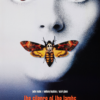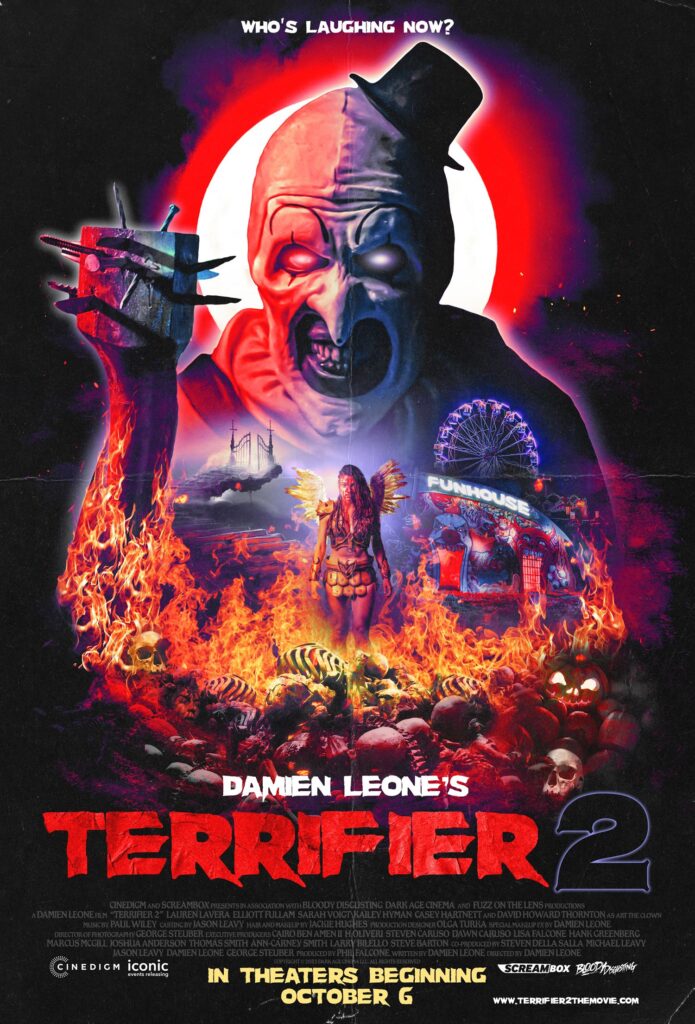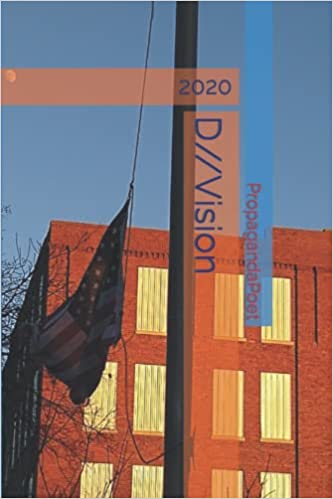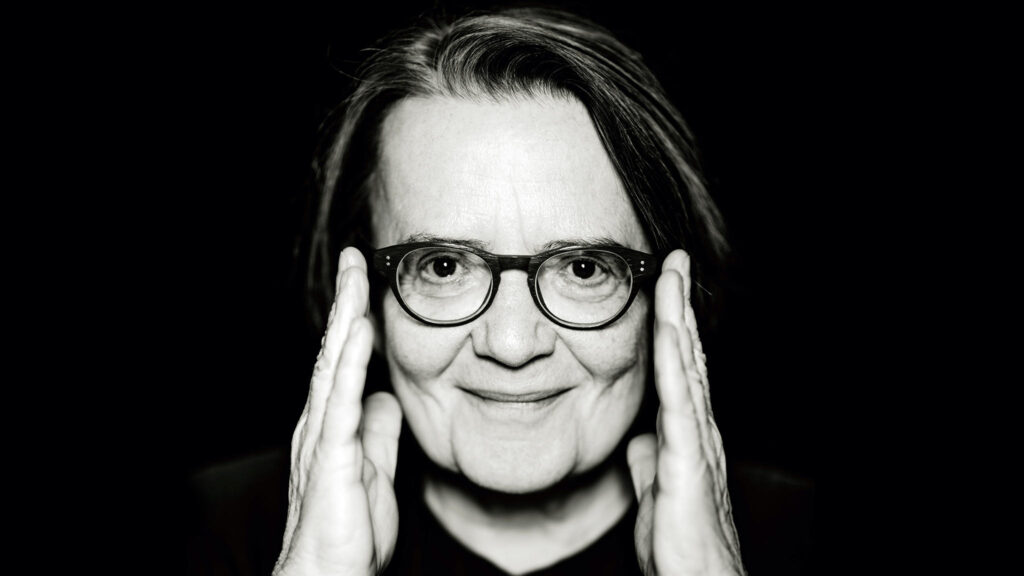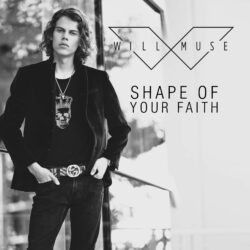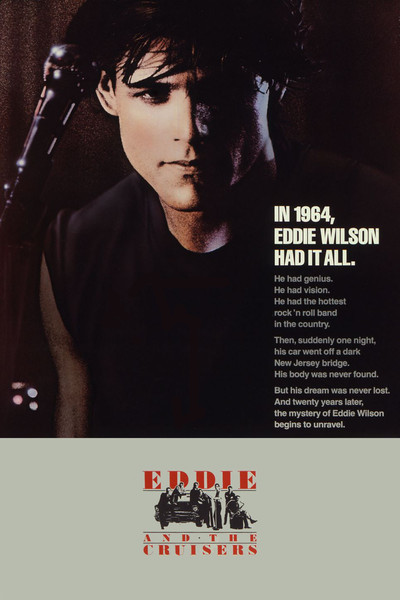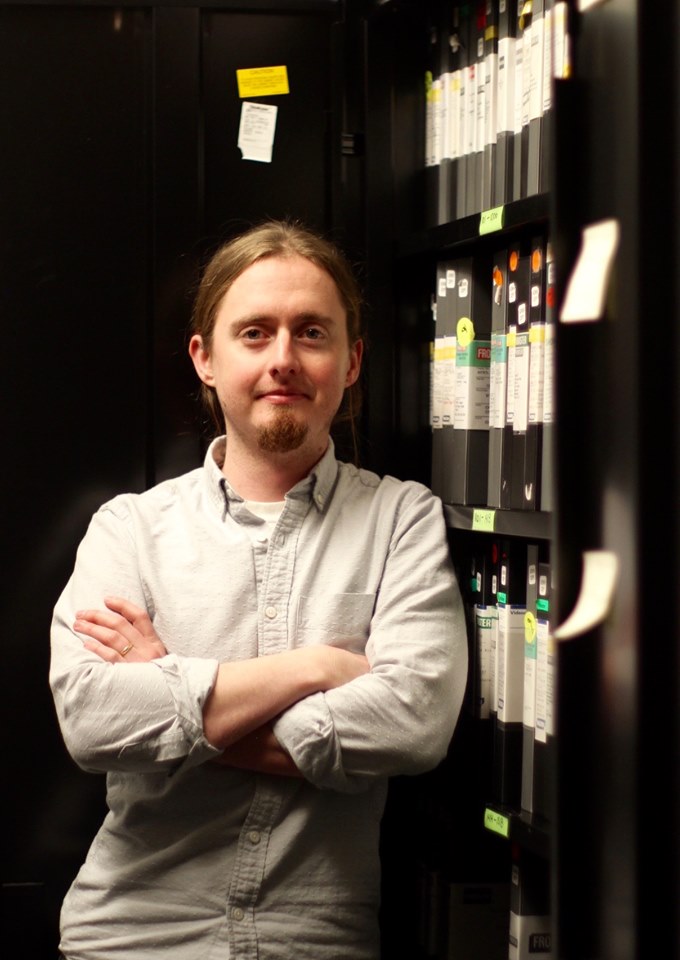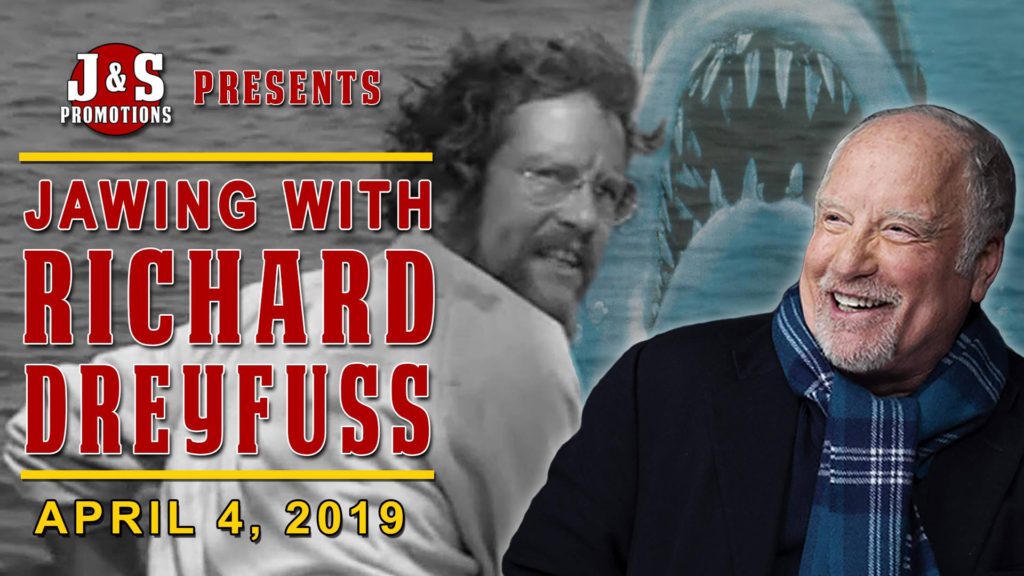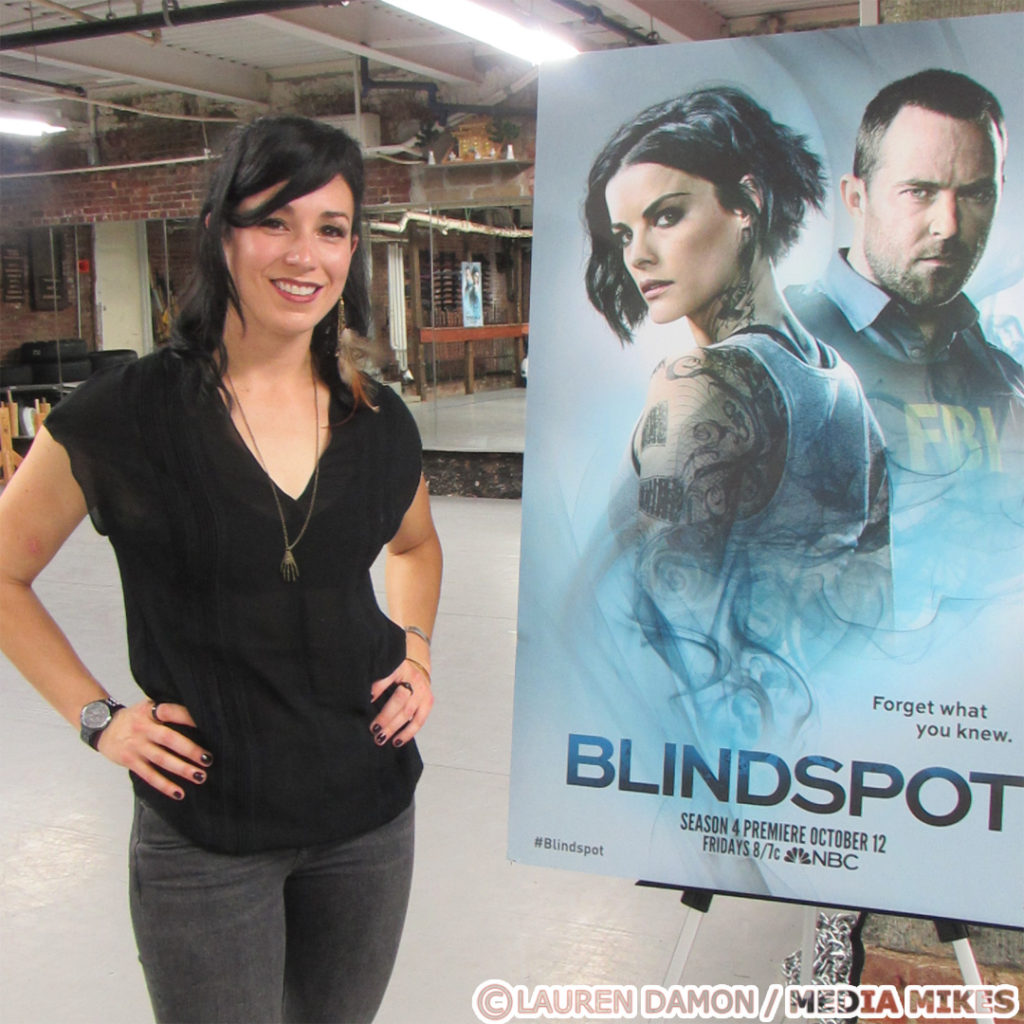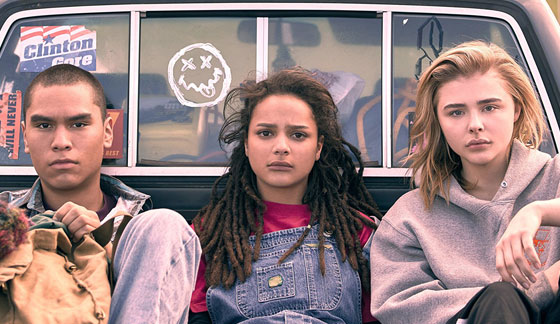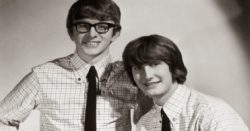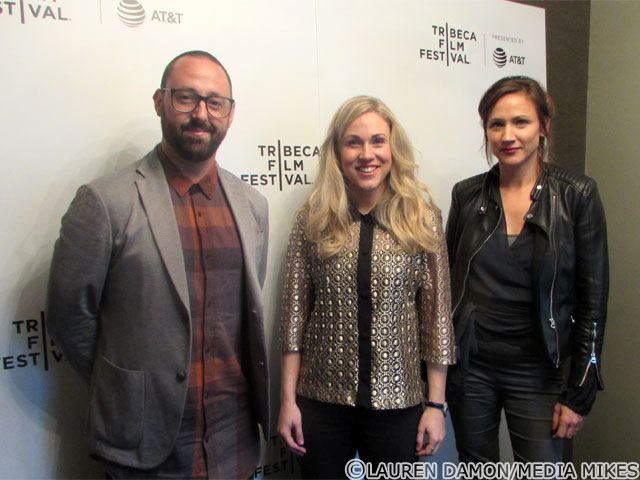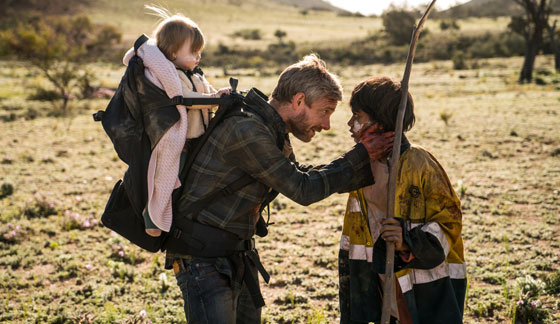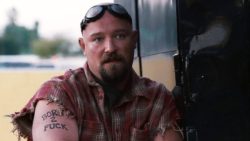The Australian-based zombie drama Cargo was released on cinemas down under this month and is currently streaming internationally on Netflix. It follows Andy (Martin Freeman, read his interview here) a father facing down a viral plague outbreak and journeying across the Australian wild to get his baby somewhere safe. Along the way he encounters both natural and human foes and joins forces with Thoomi (Simone Landers), a young indigenous girl who saw her own father taken by the virus. The film was based on a short that debuted at Australia’s Tropfest in 2013. I sat down with directors Ben Howling and Yolanda Ramke as well as producer Kristina Ceyton (The Babadook) to discuss expanding their unique zombie take to a feature.
Lauren Damon: What made you approach a zombie film from this father-daughter angle?
Yolanda Ramke: I guess, I mean for us that really was sort of the heart of the short film— was this relationship between the father and the child. And I think we felt like with the response that the short got that that was the theme, like the vibe that was really resonating with people. So we knew that that was something that we wanted to hold on to in sort of a longer form story. And then it was just a case of you know, fleshing that out. And how do you expand that from a seven minute thing to a hundred minute thing? And then also yeah, how do you bring something kind of that you feel might at least have some element of freshness to it within that genre. For us, it was going Aussie and thinking about our culture.
LD: With such a populated genre, you know, “The Walking Dead” would have already been on a couple seasons when you made the short—do you watch other content out there or try to avoid it?
Ramke: Well I think when the short kind of came out, it was maybe the “Walking Dead” was in season 2?
Ben Howling: End of season two.
Ramke: So it was still sort of like at its zenith and it was—but yeah, we were keeping tabs definitely. I think it’s good to know what other projects are doing and just to make sure that you’re conscious of that. And pushing away from it where you can.
LD: Do any of you have small children that influenced this story at all?
Ramke: We don’t, no.
Howling:No. We have fathers though!
Ramke: We have parents!
LD: Parents who would combat zombies for you?
Ramke: [laughing] Yeah, exactly. That’s it. I think they would.
Kristina Ceyton: ‘Dad, can you carry me on your back?’
Howling: We’ve actually both got fathers who are kind of like engineers, mechanic engineer types, so I guess that kind—the ingenuity of that, we’d be fine—
Ramke: Yeah, I think we both think they probably could do something like that.
Cargo Directors Ben Howling, Yolanda Ramke and producer, Kristina Ceyton
LD: Kristina, you also produced The Bababook which had that heavy mother-son theme front and center, was this project like a funny coincidence to go to a father-daughter?
Ceyton: It is. It’s funny, like initially I didn’t make that connection at all on that level because I just gravitated to the story and you know, was really moved by it. I think it is a genre movie that is surprisingly emotional and has a lot of deep layers about exactly the, you know, parent to child dynamic…but yeah, I suppose there’s parallels, but it’s a very different beast in this instance. I think it’s a lot less psychological and this is about survival and about transcending death. And I think what you would do, you know, the length you would go to to sacrifice yourself for love and family and also community on a more broader level. Yeah. I think it’s those things that really resonated.
LD: When expanding from short to feature, what was the decision making process like on how much more to reveal about the nature of this virus? Because the short was obviously very sparse on details.
Ramke: I think we were really interested in the idea of just throwing the audience in the middle of it. And just personally because we love films that do that. And that make the audience work a little bit to kind of put things together. And I think we just also felt within this genres, we’ve seen a lot of stories that were about finding the cure or that sort of thing and we just thought, ‘well that’s been done really well by other films.’ It just didn’t interest us to go there. I think we just thought, how can we carefully deal out bread crumbs and details for people to put the world together and work out what’s going on. And then just let them go on this journey with this father and this baby and this indigenous girl.
LD: Yeah, that indigenous element is very unique to this film, did you outreach to people in those communities to get their perspective?
Howling: Yeah, in script development, we brought a script consultant on, Jon Bell—who is an indigenous writer from back home and he was able to kind of walk us through. We had some ideas which we’d researched but then we’d discuss with him—‘is this feasible? Is this practical?’ Indigenous culture is very sensitive back home because you could never make a blanket statement like ‘everyone would behave like this.’ There’s all these micro-communities that have these different cultures and values and practices. So he was able to help us navigate those waters in terms of what would be the appropriate response. And then on top of that, just with his own experience. Talking about ways that you can use indigenous hunting techniques and things like that.
Ramke: And then from there, once we knew where we were shooting, which was South Australia, it was a case of conversing with local elders in those communities as well. Just to make sure that we were sort of tailoring things to that region. And giving them the script and making sure that they were comfortable with what was happening. Seeking formal permission to use language in the film. And just trying to basically approach it as respectfully as possible.
LD: How did you go about casting Thoomi?
Ramke: She was a find. Our casting director Nikki Barrett had put a call out. So that had gone to a load of very regional communities across Australia and we had kids filming themselves on their phones, having their parents like read the lines off camera in these very monotone voices. It was just super cute. And yeah, we got down to four girls who we did sort of a workshop with and we just felt like Simone from day one was sort of the standout. And yeah, she really killed it.
LD: How did you get in touch for casting Martin Freeman? Had he seen the short?
Ceyton: No he didn’t so we approached his agent. It was just basically the traditional way of approaching his agent and the initial response was ‘I don’t think that Martin likes genre films’ [laughs] But luckily he read the script and really loved it and fell in love also with the story of this dual kind of father-daughter relationship and survival. And I think for him, it was never really a ‘genre film.’ So luckily he was available at that time and just all the pieces fell into place.
LD: Did his casting change anything within the film seeing as he is basically THE whole film?
Ramke: It would have been just very small things. I think at the point that he had come on we were in the process of doing another draft anyway. So just subconsciously as a writer once you know who the actor is going to be and you’re familiar with their work, you can kind of hear their voice a little bit. So when you’re writing dialogue, there’s an element of writing it with that person in mind. But I think also once we knew that we were going to be casting a British actor, which is something we had hoped to do from quite an early on—that also informs some of the more thematic threads of the story, in terms of Australia’s colonial history. And that just absolutely put more meat on the bones I guess.
LD: Can you talk more about Australia’s past in terms of this story?
Ramke: Absolutely. Just in terms of Australia obviously being, a long way back, colonized by the British and there were a lot of ramifications that kind of linger. In terms of social issues and Australia has some work to do, I think, in terms of acknowledging that past. And you know, it hasn’t been handled in a way that some other nations like, I believe, Canada and New Zealand, where there are treaties with their indigenous people. It’s all been quite overlooked. So I think there is still a lot of collective pain that exists in indigenous Australia. And we just didn’t want to ignore that, I suppose. But we also didn’t want to get too preachy about it either. So it was something we could just let sit in the story, just by nature of being English and coming into contact with this indigenous—
LD: And him requiring their assistance.
Ramke: That’s right. That’s sort of like the reversal of the sort of historical context, I guess in a way.
LD: How did you go about developing the other Australians in the film? The human villains, who weren’t present in the short.
Howling: I think in early drafts we just explored a variety of like different antagonists. And then we just kind of blended them together into one kind of more fleshed-out three dimensional kind of person…It was nice to have somebody as a bit of a contrast to the indigenous response which was to go back to the land and traditional ways. And this is somebody who is very attached to western living and can’t let go of it. So it was just in terms of creating that, that split between the two of them and learning his motivation and fleshing it out from there.
LD: When you make a zombie-apocalypse film like this, do you find yourself considering what you would do in this worst-case scenario?
Ramke: Ohhhh…have you ever thought about what you’d actually do?
[laughter]
Howling: That makes you cocky…
Ramke: No, but I think ultimately it would always come back to family though. It would always be about ‘Are my family safe? How do I re-connect with my family?’ and make sure that we’re together if this was to go down.
Howling: But what if they’re already infected??
Ramke: [Gasps] Oh! Well I just can’t even deal with that idea, that would be heartbreaking.
LD: Your zombies are unique in that they’ve got a different design, this orange slime rather than regular blood and gore, what was the thought behind that?
Ramke: Yeah, we didn’t want to do the gory bloody thing. And I think that that just came from this approach that we tried to take to the whole film which was to just to try and keep it as sort of grounded as we could. And as subtle as we could. And that idea of that design aesthetic coming out of the natural environment. The idea that this sort of toxicity in the environment and that it sort of literally affecting the land and that is spreading to the people. So the influence for that was like tree sap was like a visual reference. That more organic kind of reference.
LD: Are you excited that this film with be hitting the Netflix audience?
Ramke: Yeah we are!
LD: Are you guys the Netflix binge-watch types, do you have favorites?
Howling: Yeah, definitely.
Ramke: I loved “The OA”. “The OA”, “Stranger Things”, I feel like there’s some other really great shows that I’m completely neglecting!
Howling: There’s really not much that I don’t binge on.
Ramke: Yeah, you’re a really good binge-er.
Howling: “Dark”, “Requiem”.
Ramke: “Requiem’s” cool, yeah.
Howling: Just recently, actually just the other day I smashed out “Lost in Space.”
LD: Do you have personal favorite zombie or horror films?
Ramke: Shaun of the Dead is my favorite zombie film, actually. But I think in terms of reference points for this film, oh my goodness, we were looking at more sci-fi stuff. So like Children of Men, District 9 and I guess The Road as well is sort of comparable.
Howling: And also Frank Darabont’s “The Walking Dead” season one was out. That’s what really kind of like ignited us back into the zombie thing…he only did season one. That was like a six-part, it’s very different to the rest.
You can watch Cargo now on Netflix.
Related Content
